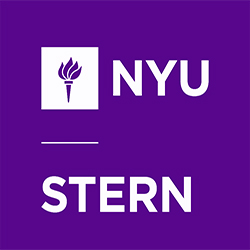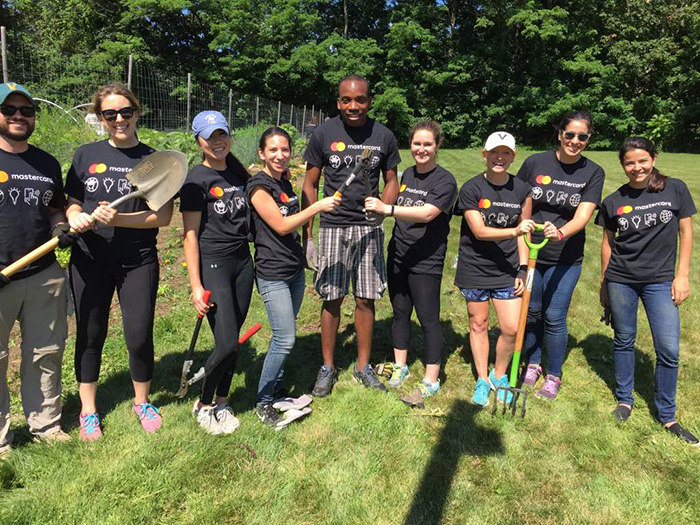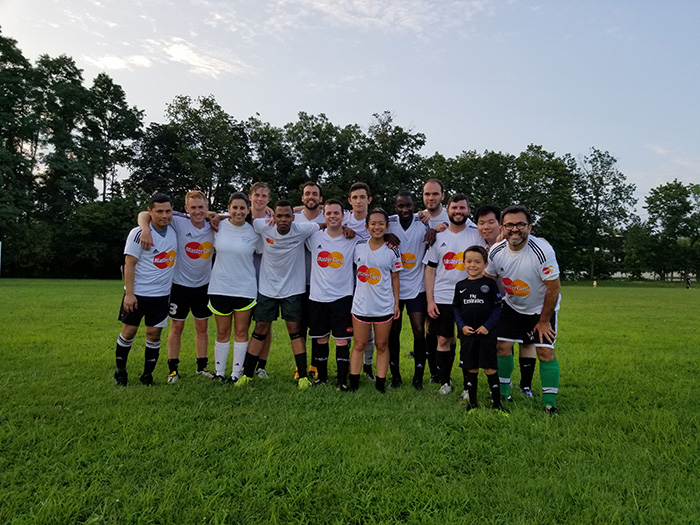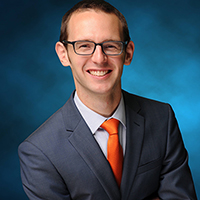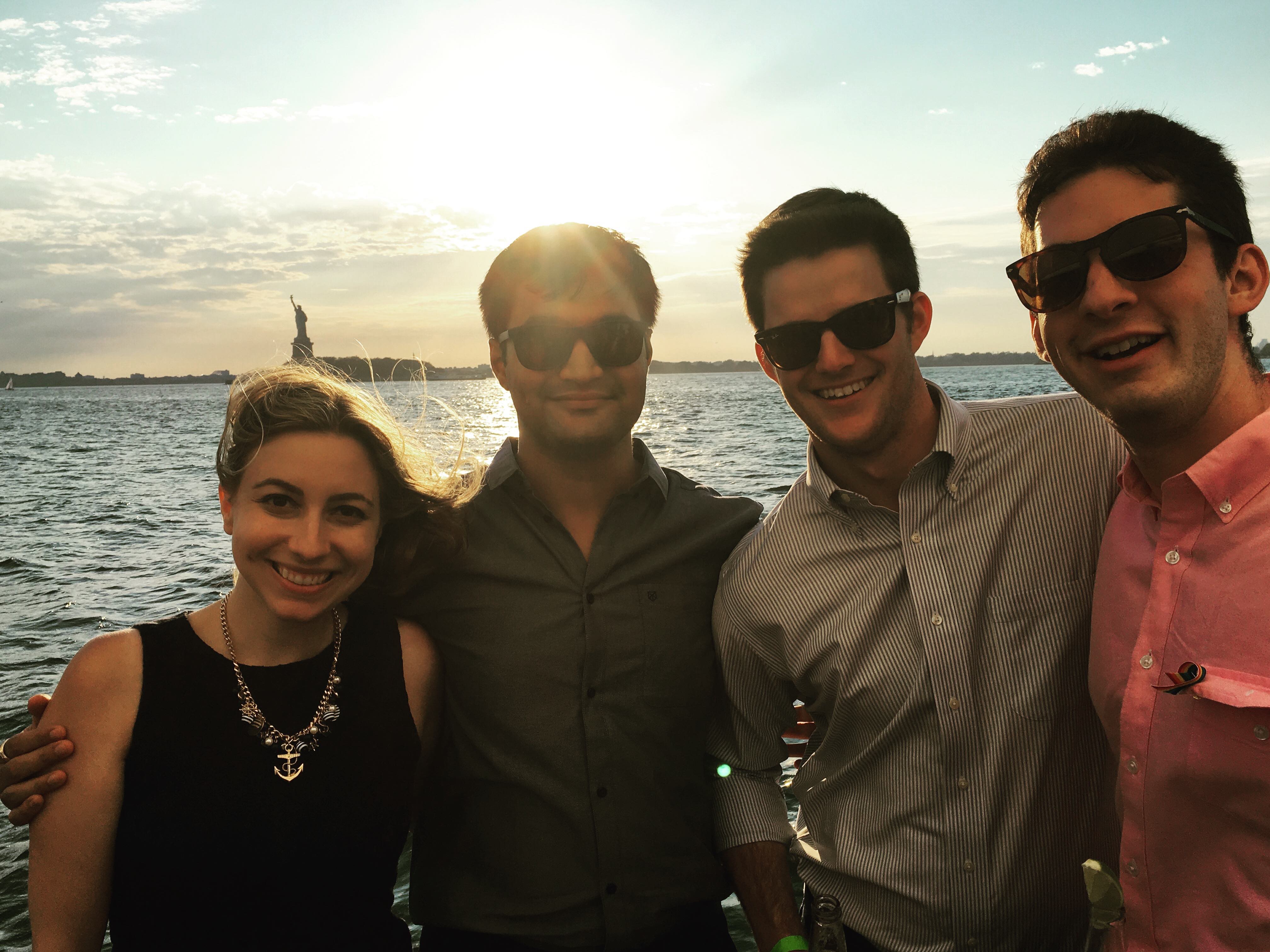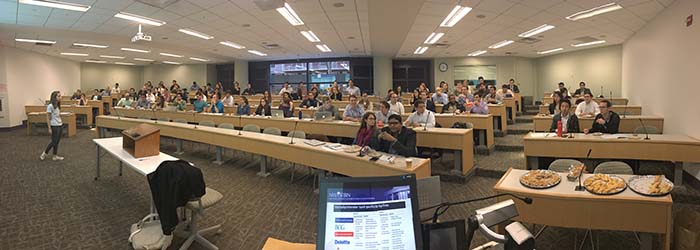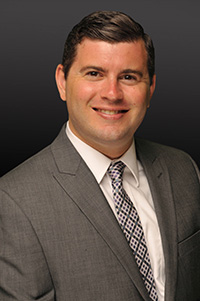 Mark Lomedico is a rising MBA2 and interning at Mastercard this summer. He is specializing in Management, Management of Technology & Operations, and Finance and is a member of the Military Veterans Club, Stern Women in Business, and the Management Consulting Association.
Mark Lomedico is a rising MBA2 and interning at Mastercard this summer. He is specializing in Management, Management of Technology & Operations, and Finance and is a member of the Military Veterans Club, Stern Women in Business, and the Management Consulting Association.
NYU Stern’s “Summer Internship Series” sheds light into Sternies’ internship experiences. Posts are written by rising MBA2s who are currently working at their summer internship.
I first met Dean Peter Henry at the Stern Military Veterans Summit for prospective students in the Fall of 2015. On a Saturday in October, the Dean spent his personal time answering our questions and describing Stern’s unique qualities. I vividly remember him discussing the notion that doing well and doing good were not mutually exclusive and that Stern empowers its students to create value in business and society after graduation. It was with those words in mind that I was able to develop a recruiting philosophy to help guide my journey during the Fall of 2016.
Sometime in November, I took stock of my recruiting strategy. I was interested in the consulting and technology industries and had my eye on a few rotational management programs. While I never felt unsure of my chosen recruiting tracks, I wanted to evaluate my options and decide what companies to focus on most. Remembering Dean Henry’s words helped me take stock of what I held to be important and consequently I concluded the following: I wanted to work at a company where I could do interesting work and have the opportunity to make a difference in society. After that revelation, Mastercard quickly became my top choice.
Given that 85% of all consumer transactions involve cash or check, Mastercard stands to experience incredible growth given its focus on digital payments and its vision of a world beyond cash. I saw the company as a place where I could learn about payments, be innovative, and work in a dynamic industry. Furthermore, Mastercard has a large focus on global financial inclusion. Initiatives such as 2Kuze, prepaid debit cards for refugees, and the many identity inclusion programs significantly improve many peoples’ lives around the world. Having served in the U.S. Army, I wondered whether my career after business school would have a higher purpose and serve a cause greater than myself. Mastercard’s executive leadership emphasizes and champions these financial inclusion programs and I am proud to intern for a company that focuses on generating revenue and improving the societies in which it operates.
Currently I am interning in an account management division that services customers (i.e., banks) that issue Mastercard cards. My project is to examine ways to make account management more efficient and improve the overall customer experience. This has afforded me the opportunity to learn much about Mastercard’s core products, its main revenue drivers, and customer needs. Far from busywork, my project was created out of an observed need for strategic analysis to be put towards a real problem. Empowered with executive buy-in, I know my efforts are valued and matter.
Outside of the office, I have been fortunate to contribute to Mastercard’s success on the soccer field. We face off against companies in the surrounding Westchester area and through soccer I have been able to meet many new Mastercard employees and learn about what they do.
As we approach the end of the summer, I have my sights set on Mastercard’s full-time rotational management program for MBA graduates. Created by the CFO, the Management Associates Program exposes participants to different business units during three six-month rotations. As Mastercard has many global offices, one rotation is at an international office such as Dubai, London, or Singapore, to name a few locations. Mastercard is full of intelligent people and exciting opportunities to create business value and to assist financially excluded segments of society. I am grateful for Stern’s relationship with Mastercard and the opportunity I was afforded to intern at the firm. I look forward to the exciting opportunities ahead of me and am thankful that Dean Henry’s perspective on the possibilities after graduation guided my recruiting efforts.
